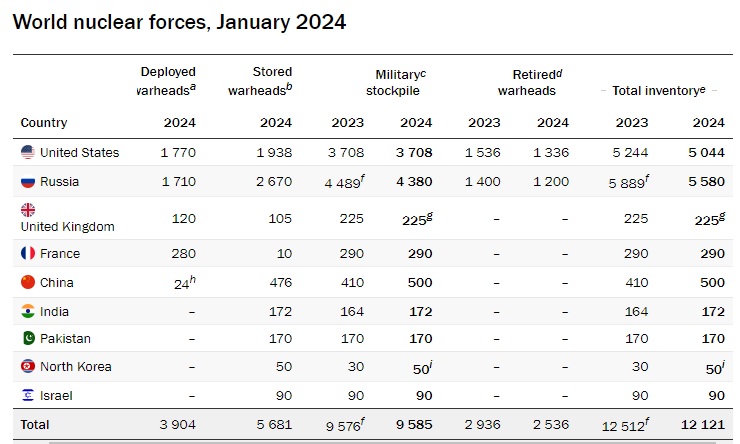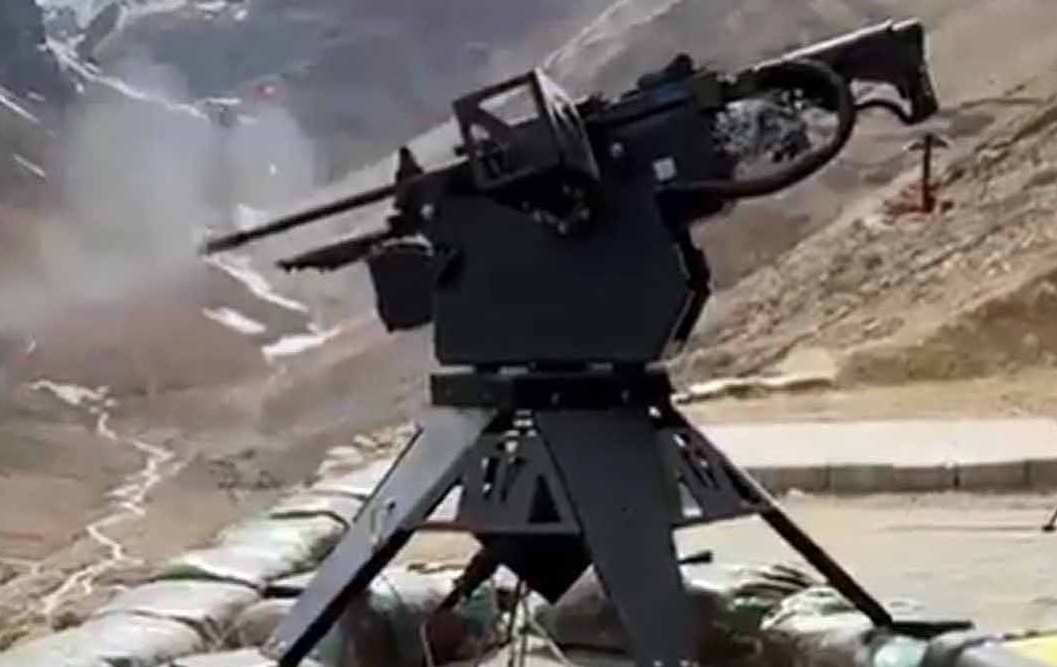India's Nuclear Arsenal Surpasses Pakistan's as China's Stockpile Expands: The Escalating Role of Nuclear Weapons in Geopolitical Tensions

India now has more nuclear weapons than Pakistan, and China's arsenal has rapidly expanded. SIPRI reports that the world's nuclear-armed states are modernizing their arsenals amid growing geopolitical tensions.
The global landscape of nuclear weapons is evolving rapidly. India now possesses more nuclear weapons than Pakistan, with China also significantly increasing its nuclear arsenal. According to the Stockholm International Peace Research Institute (SIPRI), these developments come amid a broader trend of modernization and expansion among the world's nuclear-armed states, including the United States, Russia, the United Kingdom, France, North Korea, and Israel. This article delves into the implications of these changes, highlighting how the growing emphasis on nuclear capabilities reflects the deteriorating state of geopolitical relations worldwide.

India's Nuclear Capability
As of January 2024, India has 172 nuclear warheads, slightly more than Pakistan's 170. SIPRI's report indicates that India marginally expanded its nuclear arsenal in 2023, continuing to develop new types of nuclear delivery systems. While Pakistan remains the primary focus of India's nuclear deterrent, there is a noticeable shift towards enhancing longer-range weapons capable of reaching targets throughout China. This strategic realignment underscores India's broader security concerns, particularly in the context of China's growing influence and military capabilities in the region.
China's Rapid Nuclear Expansion
China's nuclear arsenal has seen the fastest growth among the nine nuclear-armed states, increasing from 410 warheads in January 2023 to 500 in January 2024. For the first time, China is believed to have kept some warheads on high operational alert, a status previously reserved for the United States and Russia. This significant expansion is part of China's broader strategy to bolster its military capabilities and assert its position as a global superpower.
According to Hans Kristensen, Associate Senior Fellow with SIPRI’s Weapons of Mass Destruction Programme, "China is expanding its nuclear arsenal faster than any other country." This rapid growth indicates China's intent to develop a nuclear force that could rival those of Russia and the United States in terms of delivery systems, even if its total stockpile remains smaller.
The Modernization of Nuclear Arsenals
The SIPRI report highlights that all nine nuclear-armed nations are modernizing their arsenals. The United States and Russia, which together account for 90 percent of the world's nuclear weapons, have deployed new nuclear-capable weapon systems in 2023. Approximately 2,100 warheads, mostly belonging to the US and Russia, are kept in a state of high operational alert on ballistic missiles.
India, Pakistan, and North Korea are following suit by developing the capability to deploy multiple warheads on ballistic missiles. This technology, already possessed by Russia, France, the UK, the USA, and China, enables a rapid potential increase in deployed warheads and the ability to threaten a broader array of targets.
The Role of Nuclear Weapons in Geopolitical Tensions
The modernization and expansion of nuclear arsenals reflect the growing role of nuclear weapons in geopolitical strategies. The increasing emphasis on nuclear capabilities is particularly evident in the context of recent conflicts and deteriorating diplomatic relations.
The Ukraine War and NATO
Russia's invasion of Ukraine has had profound implications for global nuclear diplomacy. In February 2023, Russia suspended its participation in the New START treaty, the last remaining nuclear arms control agreement between Russia and the United States. This move has increased tensions and diminished transparency regarding nuclear arsenals. Furthermore, there have been public claims, albeit unverified, that Russia has deployed nuclear weapons on Belarusian territory, further escalating concerns about nuclear proliferation.
The Middle East and North Korea
In the Middle East, the ongoing conflict between Israel and Hamas, coupled with Iran's military support for Russian forces in Ukraine, has heightened regional tensions. These developments have undermined efforts to establish a Middle East Zone Free of Nuclear Weapons and Other Weapons of Mass Destruction.
North Korea, meanwhile, continues to prioritize its military nuclear program. SIPRI estimates that North Korea has now assembled around 50 warheads and possesses enough fissile material to produce up to 90 warheads. The country has conducted tests of short-range ballistic missiles and developed land-attack cruise missiles capable of delivering nuclear warheads, emphasizing the potential use of these weapons early in a conflict.
The Implications for Global Security
The SIPRI report warns that the global total of nuclear warheads continues to fall as Cold War-era weapons are dismantled, but the number of operational nuclear warheads is increasing year-on-year. This trend is likely to accelerate, posing significant risks to global security.
Dan Smith, SIPRI Director, stated, "We are now in one of the most dangerous periods in human history. There are numerous sources of instability—political rivalries, economic inequalities, ecological disruption, an accelerating arms race. The abyss is beckoning and it is time for the great powers to step back and reflect. Preferably together."
Conclusion
The expansion and modernization of nuclear arsenals by the world's nuclear-armed states are indicative of a broader trend towards increasing reliance on nuclear weapons in geopolitical strategies. India's growing arsenal, China's rapid expansion, and the modernization efforts by other nuclear states reflect the heightened tensions and deteriorating diplomatic relations globally. As the world grapples with multiple conflicts and rising instability, the role of nuclear weapons is becoming more prominent, raising concerns about the future of global security and stability.
✍️ This article is written by the team of The Defense News.






